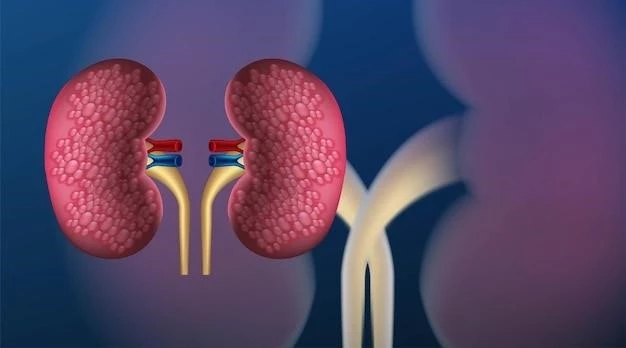Disease ⏤ Magnesium Defect in Renal Tubular Transport
Understanding the importance of maintaining proper magnesium levels in the body is crucial, especially considering its role in electrolyte balance and overall metabolic functions. In renal failure, impaired magnesium transport mechanisms can lead to deficiencies, highlighting the need to address these issues in kidney disease.
Understanding the Importance of Magnesium Levels in the Body
Magnesium is an essential mineral that plays a vital role in various bodily functions. It is crucial for maintaining proper nerve and muscle function, regulating blood sugar levels, and supporting healthy bone structure. Additionally, magnesium is involved in hundreds of enzymatic reactions that are necessary for energy production, protein synthesis, and DNA repair.
When it comes to kidney function, magnesium is tightly regulated to ensure the body’s electrolyte balance remains stable. The kidneys are responsible for filtering and excreting excess magnesium to prevent levels from becoming too high, which can lead to toxicity. On the other hand, in cases of magnesium deficiency, the kidneys work to conserve this mineral by reducing its excretion.
Imbalanced magnesium levels can have serious implications for overall health. Low magnesium levels can result in muscle cramps, fatigue, and irregular heartbeat, while high levels can lead to nausea, vomiting, and in severe cases, cardiac arrest. Therefore, it is essential to maintain proper magnesium balance to support optimal physiological function;
Understanding the importance of magnesium levels in the body is fundamental in recognizing the significance of addressing magnesium transport defects in renal tubular transport. By ensuring that magnesium levels are within the appropriate range, individuals can help prevent complications associated with renal failure and other kidney-related conditions.
Kidney Function and Magnesium Regulation
The kidneys play a crucial role in regulating magnesium levels in the body. These bean-shaped organs help filter blood, removing waste products and excess minerals like magnesium while reabsorbing necessary substances back into circulation. In the case of magnesium, the kidneys work to maintain a delicate balance, ensuring levels neither exceed nor fall below the optimal range.
Healthy kidneys efficiently filter magnesium through the renal tubules, where specialized transport mechanisms help regulate the mineral’s reabsorption or excretion. When these transport mechanisms are impaired, as in the case of renal failure, magnesium regulation becomes compromised, potentially leading to deficiencies or excess levels.
It is essential to support kidney function through a balanced diet, staying adequately hydrated, and monitoring magnesium levels through regular medical check-ups. By maintaining kidney health, individuals can help promote proper magnesium regulation and reduce the risk of complications associated with imbalanced magnesium levels.
Understanding the intricate relationship between kidney function and magnesium regulation underscores the importance of proactive measures to support renal health. By prioritizing kidney function and magnesium balance, individuals can take significant steps towards optimizing overall health and well-being.
Impaired Magnesium Transport Mechanisms in Renal Failure
In cases of renal failure, the transport mechanisms responsible for regulating magnesium in the kidneys can become impaired, leading to disruptions in magnesium reabsorption and excretion. This impairment can result in a variety of issues, including magnesium deficiencies or excess levels, both of which can have detrimental effects on overall health.
When magnesium transport mechanisms are compromised, the body may struggle to maintain the proper balance of this essential mineral. Magnesium deficiencies can manifest as muscle cramps, weakness, and heart palpitations, while elevated magnesium levels can cause nausea, vomiting, and even cardiac arrhythmias.
Addressing impaired magnesium transport in renal failure requires a comprehensive approach that may include dietary adjustments, supplementation, and medical interventions aimed at restoring proper magnesium levels. It is crucial for individuals with renal failure to work closely with healthcare providers to develop a personalized treatment plan tailored to their specific needs.
By actively addressing impaired magnesium transport mechanisms in renal failure, individuals can help mitigate the risks associated with magnesium imbalances and promote better overall kidney function. Prioritizing magnesium balance is key to managing the effects of renal failure and supporting optimal health outcomes.
Genetic Mutations and Metabolic Disorders Impacting Magnesium Levels
Genetic mutations and metabolic disorders can significantly impact magnesium levels in the body, potentially leading to disruptions in renal tubular transport mechanisms. Individuals with inherited conditions affecting magnesium metabolism may be predisposed to deficiencies or excess levels of this vital mineral.
Specific genetic mutations can interfere with the body’s ability to properly regulate magnesium, making individuals more susceptible to imbalances that can affect overall health. Metabolic disorders, such as diabetes or hyperparathyroidism, may also disrupt magnesium homeostasis, further complicating the transport of magnesium in renal tubules.
It is essential for individuals with genetic mutations or metabolic disorders impacting magnesium levels to work closely with healthcare professionals to monitor and manage their condition effectively. Treatment strategies may include dietary modifications, medications, and lifestyle changes aimed at optimizing magnesium balance.
By understanding the role of genetic mutations and metabolic disorders in influencing magnesium levels, individuals can take proactive steps to mitigate potential complications and support overall kidney function. Addressing these underlying factors is key to managing magnesium defects in renal tubular transport and promoting better health outcomes.
Diagnosis and Treatment of Magnesium Defects in Renal Tubular Transport
Diagnosing magnesium defects in renal tubular transport requires a comprehensive evaluation that may include blood tests to assess magnesium levels, urine tests to evaluate renal function, and genetic testing to identify any underlying mutations impacting magnesium metabolism.
Once diagnosed, treatment strategies for magnesium defects in renal tubular transport aim to restore proper magnesium balance and support kidney function. This may involve dietary changes to increase magnesium intake, medications to regulate magnesium levels, and addressing any underlying conditions contributing to the defect.
Regular monitoring of magnesium levels and kidney function is essential to track treatment progress and make adjustments as needed. Healthcare providers may recommend periodic blood tests and imaging studies to ensure that magnesium levels are within the target range and that renal tubular transport mechanisms are functioning optimally.
Collaborating closely with a healthcare team consisting of nephrologists, dietitians, and other specialists can help individuals effectively manage magnesium defects in renal tubular transport. By following the prescribed treatment plan and making lifestyle modifications, individuals can work towards improving magnesium regulation and supporting overall kidney health.
Conclusion⁚ Managing Magnesium Imbalance in Kidney Disease

In conclusion, addressing magnesium imbalance in kidney disease, particularly due to defects in renal tubular transport, is crucial for maintaining overall health and well-being. By understanding the importance of magnesium levels, kidney function, impaired transport mechanisms, genetic mutations, and metabolic disorders, individuals can take proactive steps to manage magnesium defects effectively.
Diagnosis and treatment of magnesium defects in renal tubular transport require a multidisciplinary approach involving healthcare providers, including nephrologists, to develop personalized treatment plans. Regular monitoring of magnesium levels, kidney function, and genetic factors is essential to track progress and adjust interventions accordingly.
Individuals with kidney disease should prioritize kidney health through lifestyle modifications, adherence to treatment plans, and regular medical follow-ups. By optimizing magnesium balance, individuals can mitigate the risks associated with imbalanced magnesium levels, promote proper renal function, and improve overall quality of life.
Managing magnesium imbalance in kidney disease is an ongoing process that requires dedication, collaboration with healthcare professionals, and a commitment to self-care. By taking proactive measures and staying informed about magnesium regulation, individuals can navigate the complexities of renal tubular transport defects and enhance their overall kidney health.
